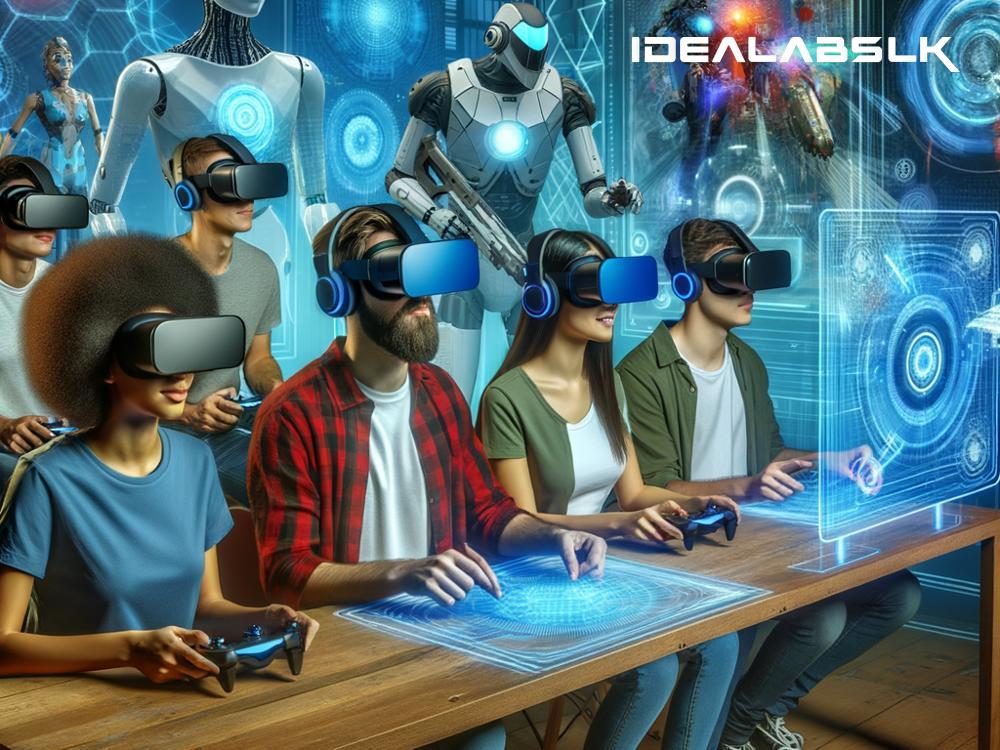How AI-Powered Games Will Offer More Immersive Multiplayer Experiences in 2025
In the rapidly evolving world of gaming, the year 2025 is set to mark a significant milestone, especially with the advancements in Artificial Intelligence (AI). AI has been transforming various sectors, but its integration into gaming, particularly in multiplayer experiences, promises an immersion like never before. Let’s explore how AI-powered games are shaping the future of multiplayer gaming, making them more engaging, realistic, and personalized.
Tailored Gaming Worlds
Imagine stepping into a game where the world adapts to your playstyle, crafting challenges and narratives that cater specifically to you. AI's capability to analyze player behavior in real-time means game environments in 2025 can dynamically adjust to provide a unique experience for every player. This means that if you prefer strategy over brute force, the game will notice and adapt the upcoming challenges to test your planning and strategic skills. This level of personalization ensures that games feel fresh and engaging, keeping players hooked for longer.
Smart NPCs: Companions and Foes
Non-playable characters (NPCs) have often been predictable, following a set of pre-defined actions. However, with AI, these characters will exhibit unprecedented levels of intelligence and autonomy. Your AI companions will be capable of learning from your tactics, providing meaningful assistance during your adventures. Conversely, AI-controlled adversaries will analyze your gameplay to devise strategies to challenge you, creating a more competitive and engaging environment. These smart NPCs will offer a richer narrative and a more realistic multiplayer experience by reacting naturally to the player's actions.
Enhanced Social Interactions
One of the biggest draws of multiplayer gaming is the opportunity to interact with players worldwide. AI is set to take these interactions to the next level by improving in-game communication. Advanced language understanding and generation AI systems will allow for real-time translation, breaking down language barriers, and fostering a truly global gaming community. Moreover, AI could monitor in-game chat for toxicity, promoting a healthier gaming environment.
Realistic Environments and Physics
AI-driven procedural generation will enable the creation of vast, intricate worlds with a level of detail and realism previously unimaginable. These game worlds will not only look breathtaking but will also behave in realistic ways, thanks to AI-powered physics engines. From the way water flows in a river to how buildings collapse during a fight, every detail will contribute to a more immersive gaming experience. Players can expect to lose themselves in these virtual worlds, exploring every nook and cranny the game has to offer.
Adaptive Difficulty Levels
One of the most significant ways AI will enhance multiplayer gaming is by implementing adaptive difficulty levels. This feature will ensure that both novice and veteran gamers find challenges that are suitable to their skill levels. AI will continuously analyze player performance, adjusting the game’s difficulty in real-time. This ensures that everyone remains engaged and has fun, regardless of their experience or skill level.
Predictive Modeling for Dynamic Content
AI's predictive modeling capabilities mean that games will constantly evolve, offering new content that aligns with player preferences and trends. This dynamic content generation ensures that multiplayer games stay relevant and exciting, continually providing players with new experiences, challenges, and stories. Whether it’s new quests in an RPG or novel arenas in a shooter, AI will keep the game environment vibrant and engaging.
Conclusion
As we look towards 2025, the future of multiplayer gaming appears incredibly promising, thanks to the advancements in AI. With personalized game worlds, intelligent NPCs, enhanced social interactions, realistic environments, adaptive difficulty, and dynamic content generation, AI-powered games are poised to offer a level of immersion and personalization that was once thought to be science fiction. These advancements will not only redefine how we play games but also how we interact with them and each other within these virtual spaces. The era of AI-powered gaming is on the horizon, and it promises to bring us closer together through experiences that are more engaging, challenging, and real than ever before.

